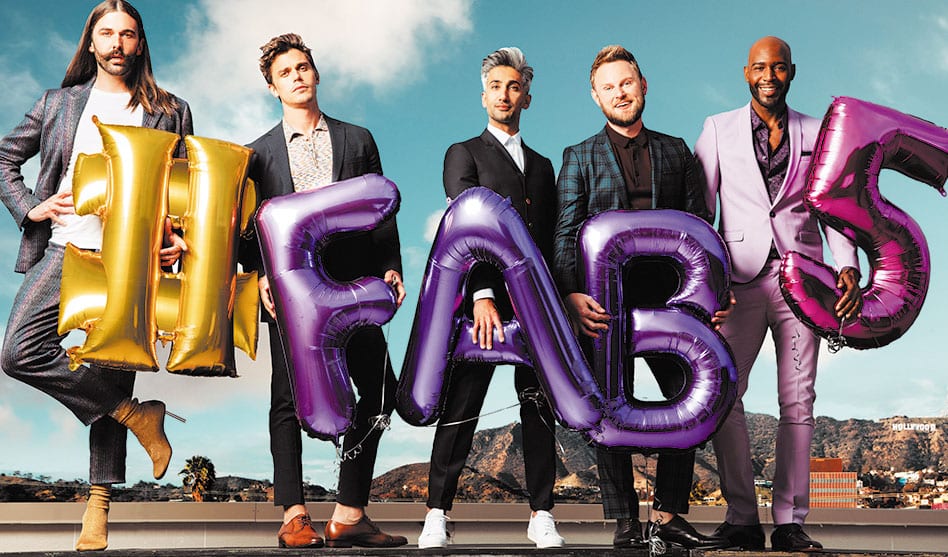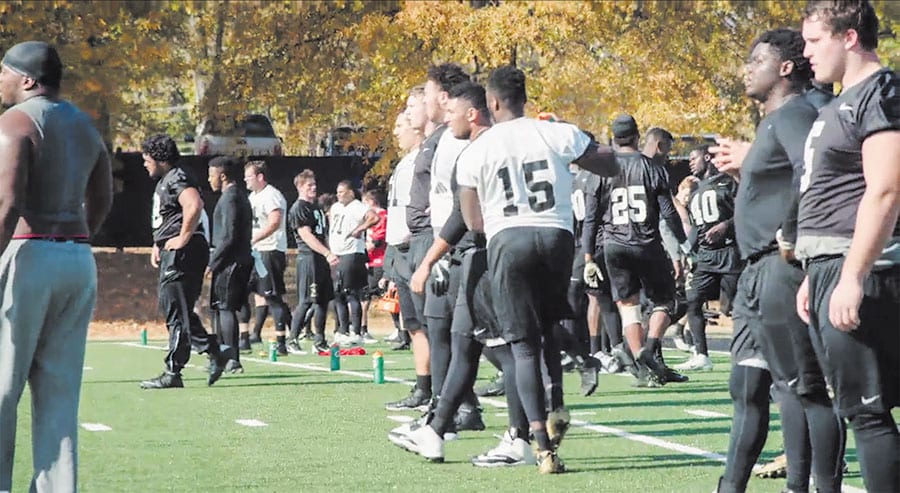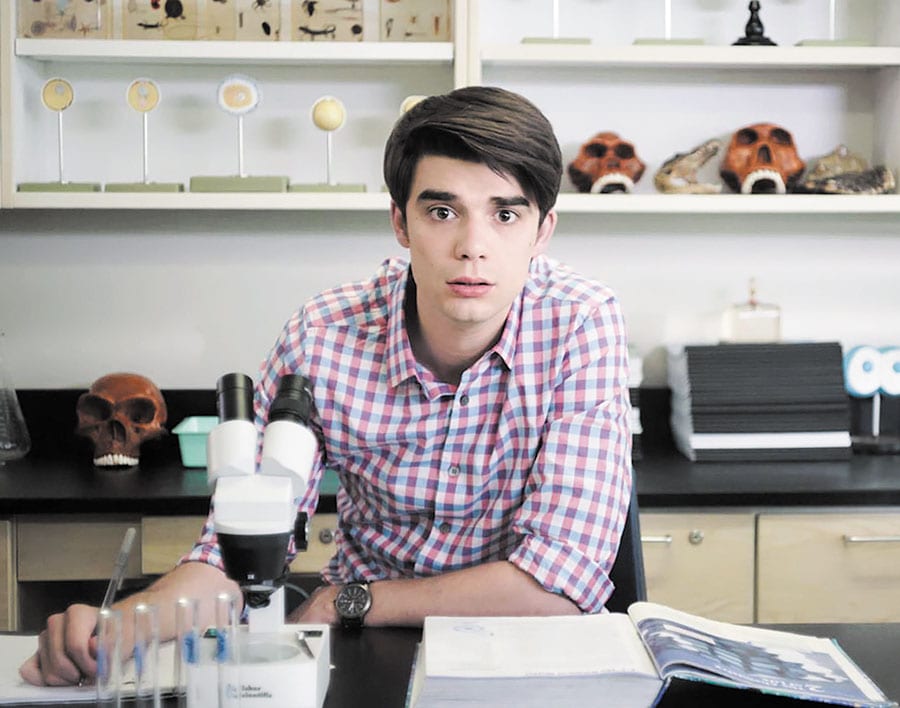Netflix’s second season of ‘Queer Eye
3 excellent shows hit the airwaves just in time for June Pride Month
ARNOLD WAYNE JONES | Executive Editor
jones@dallasvoice.com
“I’m not ashamed — just scared,” says a closeted star college athlete when explaining, with distorted voice and in shadow, why he doesn’t feel empowered to come out and be an openly gay athlete. It’s an observation that resonates strongly, especially in light of how Michael Sam — the top defensive player in a tough college conference — was a last-second draft pick only after coming out. It is still almost unheard of for players in the five major American professional male team sports to be out (there have only been two — the NBA’s Jason Collins and MLS’ Robbie Rogers — and currently, there are none). That means few role models for younger gay athletes, and not a great history of tolerance in today’s environment.
Alone in the Game, which premieres on the Audience Network on DirecTV June 28 during Pride Month, interviews Rogers, and Collins, and others in the NFL, NCAA, NBA and media (including out ESPN commentator LZ Granderson) about the state of queerness in the universe of major league sports.
Some of the stories will be familiar to gay audiences who follow sports; others will be fresh even to hardcore armchair quarterbacks. But the feature length documentary does an excellent job of profiling the homophobia that still exists in the locker room and the boardrooms and back offices. You’ll be enraged and saddened, but also heartened by those unheralded heroes who make a difference for others at great personal cost.
I’m on record as saying the year’s most overrated movie was Love, Simon, which was effectively marketed as the first major-studio gay teen romantic comedy (even though it came from the indie arm of a studio, Fox 2000). “It was sweet!” people chimed like mynas taught to mimic talking points. Sweet, maybe, but not very good. Pretty bad, in fact, from plotting to character development to its middle-brow sensibilities, Love, Simon felt suspiciously like a 50-year-old gay man in 2018 making the film he wanted to see as an 18-year-old closeted teen in the 1980s. (Which is what it is.) We deserved better.
And we got better, albeit via Netflix which is, let’s face it, a more powerful entertainment entity today than the movie studios are. Alex Strangelove, newly out on the streaming service, is the film Love, Simon wanted to be and fans pretended it was. Alex Truelove (Daniel Doheny, who’s adorable) is the nerdy high school senior who also happens to be fairly popular with all the cliques. He’s had a hot girlfriend for months, but they haven’t gone “all the way” because, well, he wants his first time to be special. (It’s not her first time, but she finds his prudishness quaint.)
Then Alex meets another teen who is openly gay, flirty and genuinely nice. They become bros… but is there more to it than that? Even Alex isn’t sure, and it’s not because he’s in the closet. He is the Q in LGBTQ. And the audience can’t be certain, either.
“I think I’m bisexual,” Alex confides to his best friend, who is neither shocked nor bothered, but dismissed the suggestion out of hand anyway. “Do you listen to Panic! At the Disco while jerking off to pictures of vampires? … Then you’re not bisexual,” the friend advises.
It’s lines like that — and the overall tone set by writer-director Craig Johnson (The Skeleton Twins) — that makes Alex Strangelove such a charming winner. Yes, it still cleaves to many of the tropes of the teen sex comedy; that’s why we see rom-coms. But it doesn’t pander, it doesn’t create unreasonable conflicts and it plays out its emotions exactly the way real people would who are friends and supportive and also easily hurt. There are no artificial bad guys, unbelievable eleventh hour redemptions. Just a modern romance for millennials. Good for them.
Also on Netflix now is the (already) second season of the reboot of Queer Eye. The first season, which debuted just months ago, was a smash hit with its emotional power and discussion of serious issues — not just gay acceptance, but coming out, racism and romance. If you thought Season 2 would slide into routine, or miss the bar set by Season 1, well sister, think again. One of the great developments on the reboot is the dropping of For the Straight Guy part. This series of eight episodes kicks off with a straight woman diagnosed with cancer who leads a church, so the makeover is not just of the hair-and-makeup variety, but of perceptions of religion and faith and mortality. (It took me all of six minutes into the first ep to get goosebumps.) The Fab Five don’t shy from expressing their personal conflicts with organized religion; they aren’t being the mainstream “aren’t-we-adorbs-as-we-zhuzh?” gays of the original series. (Not that there’s anything wrong with that.) The guys also invade small towns in Georgia, not the cosmopolitan centers of the Atlantic Corridor or Midwestern metropolises. The show is truly about winning hearts and minds… but also being wholly yourself.
I haven’t watched every episode of this season of Queer Eye yet; that would feel like a disservice to how it has been designed to be savored. No need to rush through such heartfelt emotions.














